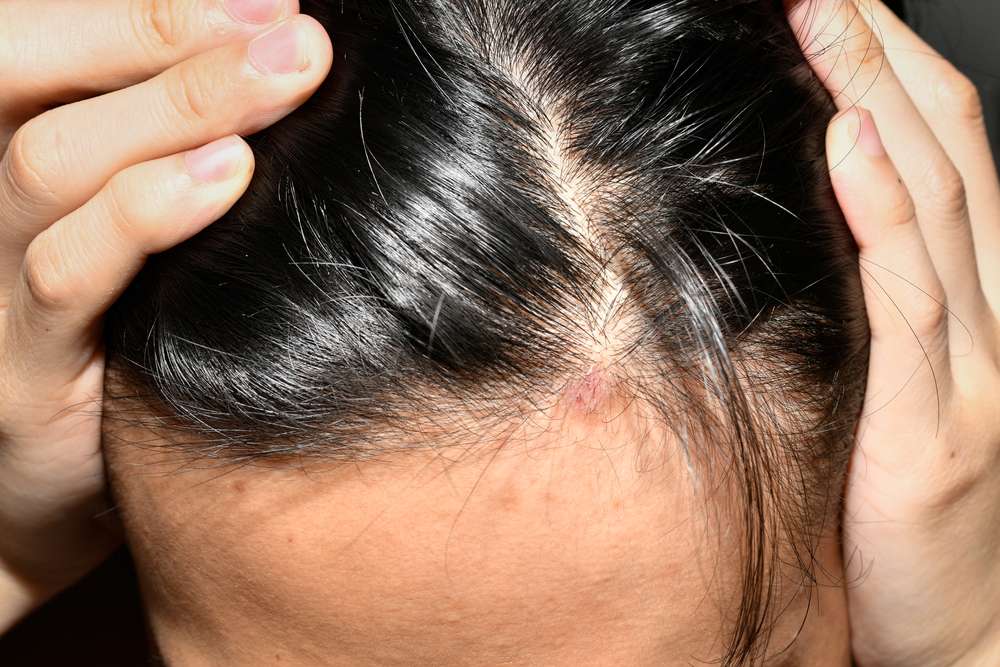What Are the 5 Shampoos That Help Manage Scalp Psoriasis?
Managing scalp psoriasis requires specialized hair care products designed to address inflammation, flaking, and discomfort. While regular shampoos may aggravate symptoms, therapeutic formulations containing specific active ingredients can provide significant relief. Understanding which shampoos are most effective for psoriasis management can help those affected make informed choices for their scalp health.

Scalp psoriasis affects millions worldwide, causing uncomfortable symptoms like redness, itching, and flaking. Unlike dandruff, psoriasis is an immune-mediated condition where skin cells multiply too rapidly, creating raised, inflamed patches covered with silvery scales. Finding the right shampoo is crucial for symptom management and improving quality of life for those affected. While no shampoo can cure psoriasis, several formulations can effectively reduce symptoms and provide relief.
What Are the 5 Shampoos That Help Manage Scalp Psoriasis?
Certain shampoos have proven particularly effective for managing scalp psoriasis symptoms. Coal tar shampoos remain one of the oldest and most reliable treatments, slowing skin cell growth and reducing inflammation. Products like Neutrogena T/Gel and MG217 contain varying concentrations of coal tar and are widely recommended by dermatologists. Salicylic acid shampoos, such as Dermarest Psoriasis Medicated Shampoo, work by softening and removing scales, making them ideal for those with significant flaking and buildup.
Ketoconazole shampoos like Nizoral address the fungal component that can exacerbate psoriasis symptoms in some individuals. Selenium sulfide formulations, found in products like Selsun Blue, help control cell turnover while providing anti-fungal benefits. Finally, zinc pyrithione shampoos such as DermaZinc offer antimicrobial properties that can reduce inflammation and scaling. Each of these five categories represents a distinct approach to managing scalp psoriasis symptoms.
How Do Recommended Shampoos Soothe Scalp Psoriasis?
The therapeutic action of psoriasis shampoos depends on their active ingredients and how they interact with affected skin. Coal tar works by slowing excessive skin cell production and reducing inflammation, though it may temporarily stain light-colored hair. Salicylic acid functions as a keratolytic agent, breaking down the protein structure of scales and facilitating their removal, while simultaneously reducing inflammation.
Ketoconazole shampoos primarily target fungal organisms that may contribute to inflammation, making them particularly useful for individuals whose psoriasis symptoms are complicated by seborrheic dermatitis. Selenium sulfide reduces cell turnover and has mild antifungal properties. Zinc pyrithione works through multiple mechanisms, including antimicrobial action and regulation of skin cell production. For optimal results, many dermatologists recommend rotating between different types of therapeutic shampoos to prevent adaptation and maintain effectiveness.
What Options of Shampoos Are Formulated for Scalp Psoriasis Care?
Beyond the five main categories of medicated shampoos, several other formulations address scalp psoriasis symptoms. Clobetasol propionate shampoos contain a potent topical steroid that can rapidly reduce inflammation but require a prescription due to potential side effects with prolonged use. Natural alternatives include tea tree oil shampoos, which offer mild antimicrobial benefits without harsh chemicals, though their effectiveness varies considerably between individuals.
For those with sensitive skin, fragrance-free, hypoallergenic formulations help avoid additional irritation while treating psoriasis symptoms. Some manufacturers have developed combination products containing multiple active ingredients, such as coal tar plus salicylic acid, to address multiple aspects of psoriasis simultaneously. Additionally, prescription biologic therapy-compatible shampoos are available for patients using systemic treatments, formulated to complement rather than interfere with these advanced medications.
Understanding Active Ingredients and Their Benefits
The effectiveness of psoriasis shampoos hinges on their active ingredients. Coal tar, derived from coal, contains thousands of compounds that collectively reduce inflammation and slow cell proliferation. Clinical studies show concentrations between 0.5% and 5% provide the best balance of efficacy and tolerability. Salicylic acid, a beta-hydroxy acid, works at concentrations of 1.8% to 3% to dissolve the intercellular cement that holds scales together, facilitating their removal.
Ketoconazole’s antifungal properties are most effective at a 1% concentration for over-the-counter products and 2% for prescription formulations. Selenium sulfide acts through cytostatic effects on the epidermis and has demonstrated effectiveness at concentrations of 1% to 2.5%. Zinc pyrithione works optimally at concentrations of 1% to 2%, inhibiting fungal growth while modulating skin cell turnover. Understanding these concentration thresholds helps consumers select products with sufficient active ingredients to address their symptoms effectively.
| Active Ingredient | Common Products | Mechanism of Action | Best For |
|---|---|---|---|
| Coal Tar | Neutrogena T/Gel, MG217 | Reduces inflammation, slows cell growth | Moderate to severe scaling |
| Salicylic Acid | Dermarest, Baker’s P&S | Removes scales, softens plaques | Thick, stubborn scales |
| Ketoconazole | Nizoral | Antifungal, reduces inflammation | Combined seborrheic dermatitis/psoriasis |
| Selenium Sulfide | Selsun Blue | Controls cell turnover, mild antifungal | Mild to moderate symptoms |
| Zinc Pyrithione | DermaZinc, Head & Shoulders Clinical | Antimicrobial, regulates cell production | Mild symptoms, maintenance |
Prices, rates, or cost estimates mentioned in this article are based on the latest available information but may change over time. Independent research is advised before making financial decisions.
How to Maximize Benefits from Psoriasis Shampoos
The application method significantly impacts treatment effectiveness. For optimal results, apply the shampoo directly to the scalp rather than diluting it by wetting hair first. Massage the product gently into affected areas and allow it to remain on the scalp for the manufacturer-recommended time—typically 5-10 minutes for most medicated shampoos. This contact time is crucial for active ingredients to penetrate scales and reach the underlying skin.
Consistency is key with psoriasis shampoos. During flare-ups, daily use may be necessary, transitioning to 2-3 times weekly for maintenance once symptoms improve. Many dermatologists recommend alternating between different types of medicated shampoos to prevent adaptation and maintain effectiveness. Additionally, using a gentle, moisturizing conditioner on hair ends (avoiding the scalp) can counteract the drying effects of medicated shampoos while maintaining scalp treatment benefits.
Managing scalp psoriasis requires a comprehensive approach, with specialized shampoos forming a cornerstone of treatment. While these products can significantly reduce symptoms, they work best as part of a broader management plan that may include prescription medications, lifestyle modifications, and stress management techniques. Consulting with a dermatologist helps ensure the selected shampoo addresses your specific symptoms and complements any other treatments you may be using.
This article is for informational purposes only and should not be considered medical advice. Please consult a qualified healthcare professional for personalized guidance and treatment.




